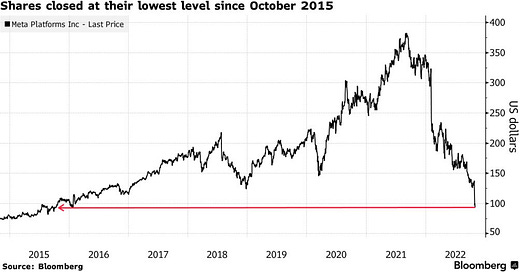I’m taking another break from Twitter. I thought I should share my reasons, and Notes is the best place to do this.
A week ago, it looked like Elon Musk had ended his war with Substack. Even at its worst, it was a one-sided war because only Twitter was taking targeted punitive measures aimed at a single adversary. And these attacks struck me as being potentially illegal. (But it’s been a long time since I’ve read the Sherman Antitrust Act of 1890 and its definition of predatory practices used by large competitors to destroy small ones—so I’m making no legal claims here.) In any event, the war seemed over on April 10.
But starting yesterday Twitter began preventing thumbnail images from displaying for any Substack article.
It’s a small thing, but revealing of the vengeful, controlling mindset that now dominates Twitter’s corporate philosophy.
Some months back, I wrote on “How Web Platforms Collapse”—and though the article focused on Facebook, Elon Musk is making the exact same mistake as so many other technocrats. He has shifted from empowering users to manipulating them for his own benefit. He’s feels entitled—as if acquiring the company also gave him dominion over the people who voluntarily contribute to his platform.
This is precisely what defines the difference between Twitter and Substack. One of them manipulates, and the other empowers. This is not a small difference.
By the way, one of them changes its punitive rules constantly, while the other is consistent and transparent. And one of them wants to charge me, while the other helps me earn a living. These are also significant differences.
Maybe this kind of vendetta strategy works in a Mafia turf war, but it’s a bad business move for Mr. Musk. Sooner or later, people resist the punitive, manipulative games he is playing—especially now that he’s trying to charge for his platform.
The first people to leave these types of dysfunctional situations are precisely those who believe in reciprocity, transparency, trust, and fair dealing. I believe that’s already happening at Twitter.
Elon Musk can tell himself that those people and their ‘soft’ values are expendable. But over the long run he will almost certainly regret the exodus he has stirred up.
I’ve been in media long enough to know that you eventually get an audience that mirrors your own values. Trolls end up in shouting matches with other trolls—it’s inevitable. Civil, decent people gravitate to others with those same characteristics. Bodhisattvas end up communing with other bodhisattvas.
That’s how it works.
Elon Musk is a newcomer to media, so he may not have experienced this yet. Maybe different rules apply in the world of electric cars or spaceships. But when your vocation is the Word, shared values and trustworthy behavior are more powerful than engine specs.
So I can understand Musk’s limited understanding of how people who live by the trust and power of the Word operate. But he’s likely to get a fast education in the way this kind of karma works.
For the time being, I’m focused on building a community here. I’m confident that many others will soon join us.


